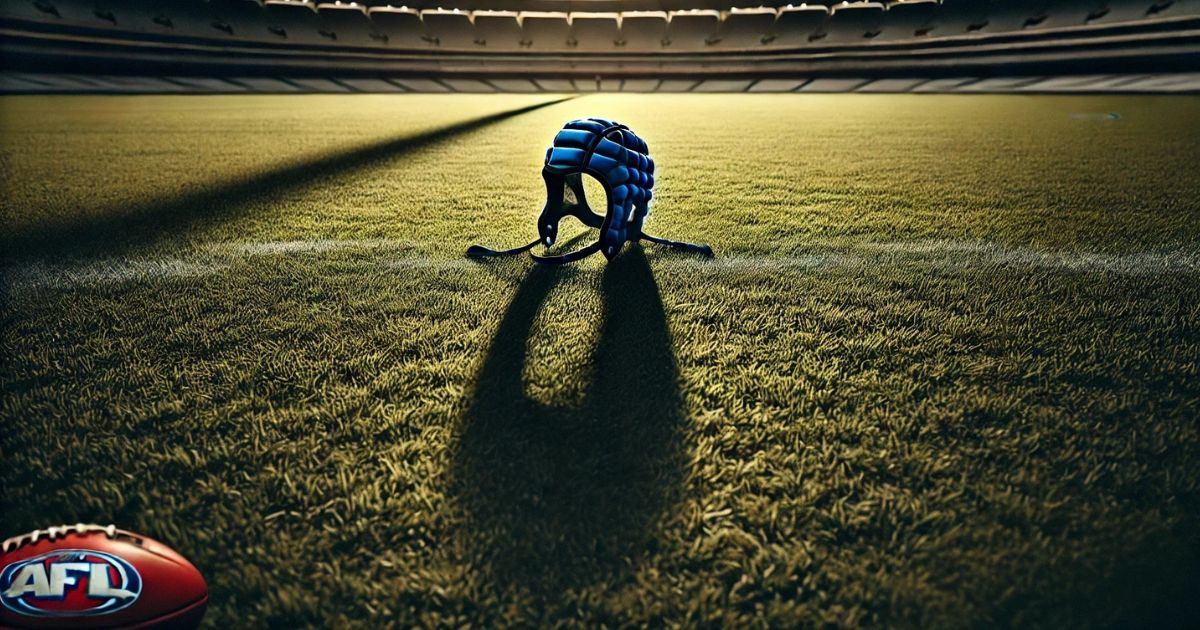
Once again, we’re confronted with the devastating reality of repeated head trauma in Australian Rules Football, this time through the courageous testimony of former SANFL player Luke Ivens. His story, recently shared by ABC Science’s Listen Up, serves as yet another stark warning about the catastrophic impact of treating brain injuries as mere inconveniences to be “played through.”
What’s particularly frustrating about this ongoing crisis is that the devastating impact of repeated head trauma is nothing new to medical science. The “punch-drunk syndrome” among boxers was well-documented generations ago—even becoming the subject of mainstream films. For as long as I’ve been practicing, the necessity of a multi-disciplinary team approach to concussion treatment has been as fundamental as gravity. This isn’t cutting-edge medicine; it’s as old as Methuselah, as they say. Yet here we are, still watching sporting codes act as if they’re discovering these impacts for the first time.
Luke’s revelation that he suffered “up to 20 concussions” during his career—with his neurologist later suggesting the damage was equivalent to 50 concussions—is nothing short of horrifying. But sadly, it’s not surprising to those of us who have long campaigned against the AFL’s inadequate response to head trauma.
The Traumatic Familiar Pattern
What truly strikes me about Luke’s account is the familiar pattern we’ve seen countless times: a young player enduring multiple concussions (five in just one year!), returning to play far too quickly, and the devastating long-term consequences that followed. As I’ve maintained for years, one concussion is too many, yet here we have another player who suffered dozens.
The most heartbreaking aspect of Luke’s story is his description of the aftermath: the crippling social anxiety, the memory loss so severe he couldn’t remember what he’d eaten the night before, and the descent into using alcohol as a coping mechanism. These are not mere inconveniences—they are life-altering consequences that affect not just the player, but entire families.
When Luke’s neurologist likened his brain to that of a car-crash victim, it should have sent shockwaves through the AFL community. But will it? Or will this be yet another story that elicits what concussion expert Alan Pearce aptly calls “vanilla rhetoric” from the league?
I applaud Luke for his bravery in speaking up and particularly for his work with the Concussion Legacy Foundation. His redefinition of bravery—from “getting up and continuing to play after a big hit” to “speaking up and being honest about your symptoms”—is precisely the cultural shift we need in football.
It’s Time To Listen And Act
But let’s be crystal clear: while personal stories like Luke’s are vital for raising awareness, they shouldn’t be necessary. The science on CTE and concussion is already overwhelmingly clear. We don’t need more tragic stories to prove what we already know—we need immediate action to prevent more stories like this from occurring.
The AFL cannot continue treating brain injuries as if they were pulled muscles that simply need a brief rest. As I’ve said before, and I’ll continue saying until meaningful change occurs: the brain is not a muscle.
To parents considering letting their children play AFL, I maintain my position: choose another sport. No game is worth the risk of brain damage at any time in life. Until the AFL implements dramatic rule changes that all but eradicate head and neck trauma as a normal part of play, they continue to show complete disregard for their players’ long-term wellbeing.
Luke Ivens’ story adds to the mounting evidence that the current system is catastrophically broken. We need an independent body comprised of medical experts and researchers to establish new rules and protocols—not more committees controlled by the AFL, who have repeatedly shown they prioritise spectacle over safety.
The time for half-measures and token gestures is long past. How many more players need to suffer before we see real change?
Prof Dr Margie Sharpe is a neuro-vestibular physiotherapist who has been treating people with the effects of mild traumatic brain injury for several decades.
